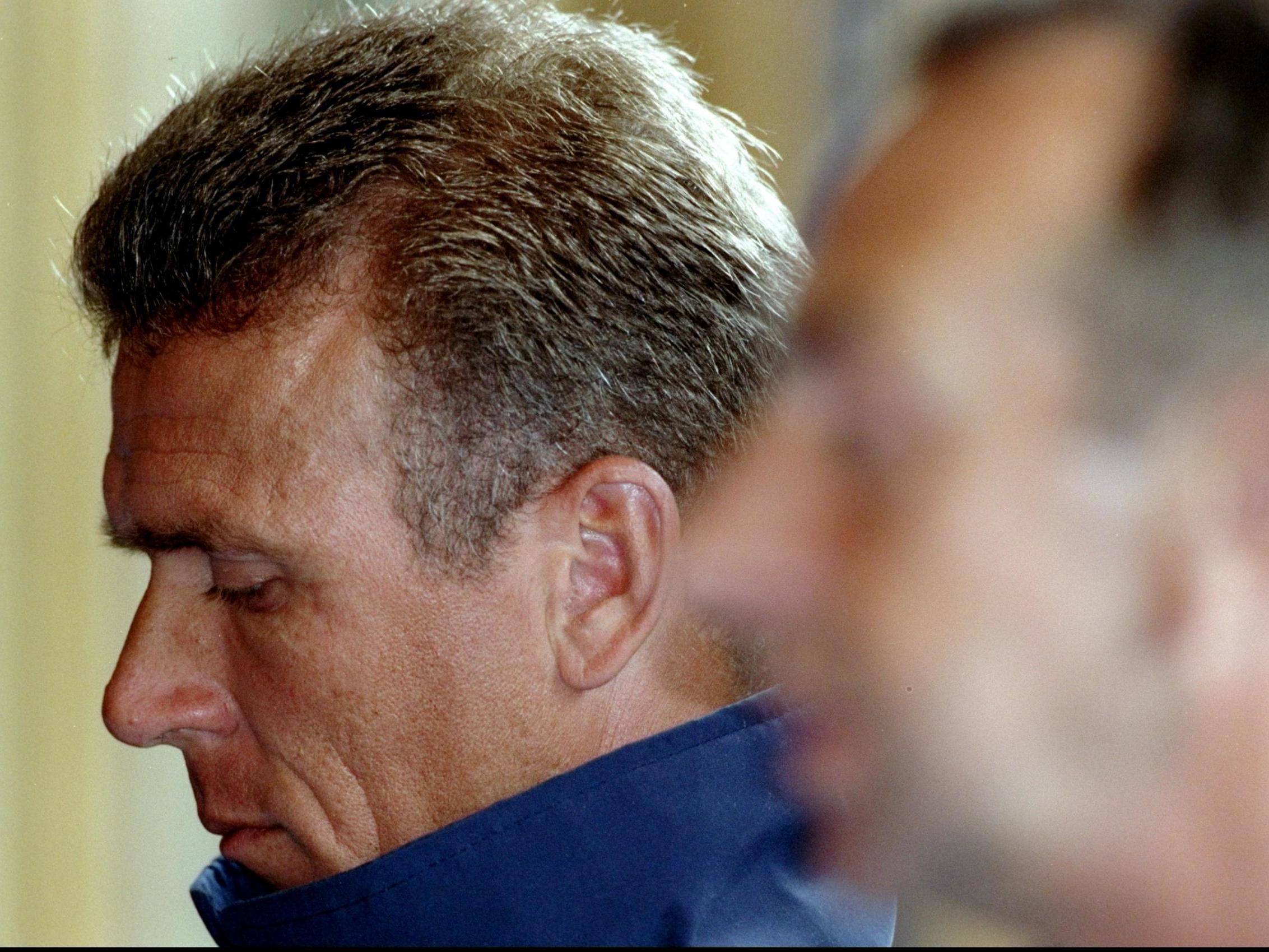England vs India: Ghosts of the past loom large ahead of crunch Cricket World Cup clash
England's defeat by India at the 1999 signalled the end of their World Cup campaign. Are the hosts in store for a similar fate this time around?
“A dressing room is always pretty desperate after a defeat but I think we knew we were buggered.”
It was a cool late Spring day in May 1999 as Angus Fraser and his colleagues sat in the Edgbaston pavilion and digested the ramifications of a defeat to India that had effectively dumped England out of the World Cup.
The tournament song was yet to be released. But the fat lady had already sung.
That defeat to India, England’s opponents in a similarly make or break fixture at the same ground on Sunday, coupled with Zimbabwe’s shock victory over South Africa saw Alec Stewart’s side finish fourth in their group, a single place outside the qualifying positions.
It represented a hammer-blow for the English game, despite the competition going on to be one of the best and most entertaining World Cups in history; indeed, it was a measure of England’s standing at the time that the tournament barely skipped a beat following their exit.
“We were expecting South Africa to beat Zimbabwe,” Fraser tells The Independent. “But we went into the second day against India (with rain ending play prematurely on the Saturday) knowing that we had cooked it.
“Our run-rate was inferior because we had taken too much time to score our runs against Zimbabwe and Kenya. That was what did for us in the end because we could have got the runs in those two matches a lot of more quickly than we did.”
After England had restricted India to just 232 for 8 in their 50 overs – with Fraser going for just 30 in his 10 overs – it seemed likely that England would record a fourth win out of five, with a heavy defeat to South Africa the only blemish on an otherwise relatively impressive campaign.
Then the wheels came off.
Further south, in Chelmsford, Zimbabwe began pulling off one the great World Cup heists against South Africa. And as the rain clouds gathered in Birmingham, India’s bowlers were tightening the screws on England.
Debasis Mohanty reduced England to 13 for 2, after taking the wickets of captain Stewart and Graeme Hick for a duck. The hosts were three wickets down by the time the deluge finally arrived, forcing play into the reserve day.
By the time England returned to Edgbaston on the Sunday, they knew a game that had previously had the look of a dead rubber was now one they desperately needed to win.
“South Africa were pretty much the best team in the world at the time so no-one expected them to lose to Zimbabwe,” says Adam Hollioake, one of three all-rounders in that side alongside Andrew Flintoff and Mark Ealham. “I think we probably thought we had done enough before that match to make it out of the group. No-one really saw that coming.”
That said, England’s inglorious and somewhat clumsy stab at World Cup glory hadn’t been helped by a dispute that at one stage almost resulted in the players refusing to play at the tournament entirely.
“We were a pretty disparate lot,” says Fraser. “We had had arguments about contracts and stuff like that before the tournament started. We hadn’t played brilliant cricket but there were also some bits and pieces that were going on that hadn’t been particularly positive.”
In the end, that summer would, in many ways, prove to be a defining one for English cricket, with central contracts being introduced the following year and the country’s cricketing fortunes, particularly in the Test arena, starting an upward trajectory that has continued virtually ever since.

As the procession of England batsmen trudged wearily back to the Edgbaston pavilion in front of a three-quarters full Edgbaston on that dismal Sunday morning, there didn’t appear to be too many glimmers of hope on the horizon.
They were eventually put out of their misery when Alan Mullally was bowled by Javagal Srinath with England still 63 shy of their target.
It was the kind of meek surrender that Fraser doesn’t expect to see repeated on Sunday or in the New Zealand match that follows next week. He does, though, admit that England being knocked out of this World Cup would be seen as a far bigger shock than it was all those years ago.
“It would be a failure, to not get to the semi’s would be a failure,” says Fraser. “You get to the semi’s then who knows – but not getting there with a team that has achieved so much in the last three or four years would be a shock.
“I don’t think England will or should change their approach. To change that philosophy now would be wrong. You’ve had a game plan and a style of cricket that has won you so many games in the last two or three years. To change it at the 11th hour would be wrong but I don’t think we will.”
After that defeat in 1999, then coach David Lloyd described the scene in the dressing room as being “sombre, absolute desolate.”
Trevor Bayliss and Eoin Morgan will hope to strike a rather more upbeat tone on Sunday evening.
Join our commenting forum
Join thought-provoking conversations, follow other Independent readers and see their replies
Comments
Bookmark popover
Removed from bookmarks